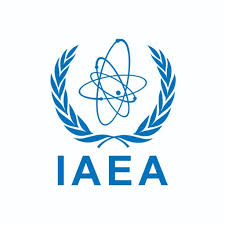New IAEA e-learning course launched to equip young nuclear professionals
The e-learning course is free and is open to who is interested in the topic of strategic and business planning within the nuclear field.

Nuclear science and technology is applied in many different sectors in Latin America and the Caribbean, including public health, manufacturing, food production, environment control, scientific research and many other essential economic sectors. National nuclear institutions (NNI) in each country bring stakeholders together, ensuring that existing nuclear services address market needs, and that each economic sector is aware of how scientific advancements and innovations in nuclear science and technology can provide them with support in the future.
A new IAEA e-learning course, developed in cooperation with the Argonne National Laboratory (ANL), has been launched to equip young nuclear professionals in the region with the skills to strategically manage the development, operations and financing of nuclear technology services, ranging from radioisotope production to instrument calibration services, or from food irradiation to multielement analysis of various samples and objects, among others. The goal is to ensure capacity to meet national needs today and well into the future. The e-learning course is free and is open to who is interested in the topic of strategic and business planning within the nuclear field.
Virtual training for young professionals
Launched in December 2021, the new e-learning course presents 23 lectures in 10 modules. These modules begin by introducing online students to the fundamental principles of strategic planning, explore stakeholder management, and finally conclude with lessons on finance, outreach and change management.
Strategic planning is indispensable for national nuclear institutions that aim to respond to stakeholder needs, explained Danas Ridikas, Head of the Physics Section in the IAEA’s Department of Nuclear Sciences and Applications. “It is a process used by organizations to identify their goals, the strategies necessary to accomplish them and the internal management systems used to monitor and evaluate progress.”
In addition to presentations by IAEA and ANL staff, the course benefits from the participation of guest lecturers from the Donald C. Cook Nuclear Power Plant and from human resource development firms.
“Transparency, transparency, transparency,” reiterated William Downey, the Communications Manager of the DC Cook Plant, who spoke about the value of stakeholder engagement. “Whether an issue is big or small, a proactive approach to keeping people informed allows you a better opportunity to take control of the narrative and shape it in a positive way.”
Ongoing support and cooperation
IAEA support over the past decades has enabled close to 20 countries in Latin America and the Caribbean to establish, and subsequently enhance, nuclear institutions and national commissions that focus on the peaceful applications of nuclear science, added Raul Ramirez, Section Head at the Division for Latin America and the Caribbean in the IAEA’s Department of Technical Cooperation.
“As the need for academic pipelines, qualified nuclear professionals and regional partnerships grew, the IAEA and the States-Parties of the ARCAL Regional Cooperation Agreement recognized that additional steps were needed to guarantee that the application of nuclear technology would be visible and sustainable and that it would contribute to the achievement of national strategies and global development goals,” said Ramirez.
Since 2018[1], a series of IAEA technical cooperation (TC) projects has helped NNIs in Latin America to enhance their sustainability and gain greater relevance and visibility. Regional meetings were organized to establish collaborative networks amongst the region’s national nuclear institutions and visits were organized to glean the experiences of counterparts at the U.S. Department of Energy and the Argonne National Laboratory. Further training courses and expert visits have been organized through a follow-up TC project launched in 2020[2], which has emphasized the development of capacities in the younger staff and researchers of NNIs.
ALSO READ
IAEA’s Most-Read Stories of 2025 Highlight Global Curiosity in Nuclear Science
Uganda Cancer Institute Delivers First VMAT Treatment for Child Tumour with IAEA Aid
Find My Santa: Revolutionizing Festive Gifting with Technology
A large economy like ours should develop substantial and contemporary manufacturing if it is to keep abreast of technology: Jaishankar.
Technology Shares Lead Market Rebound Amid Economic Uncertainty










